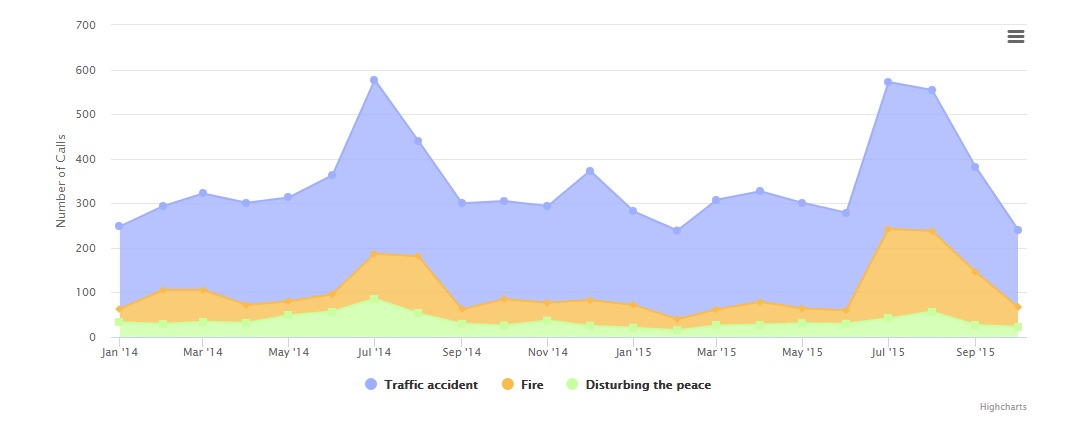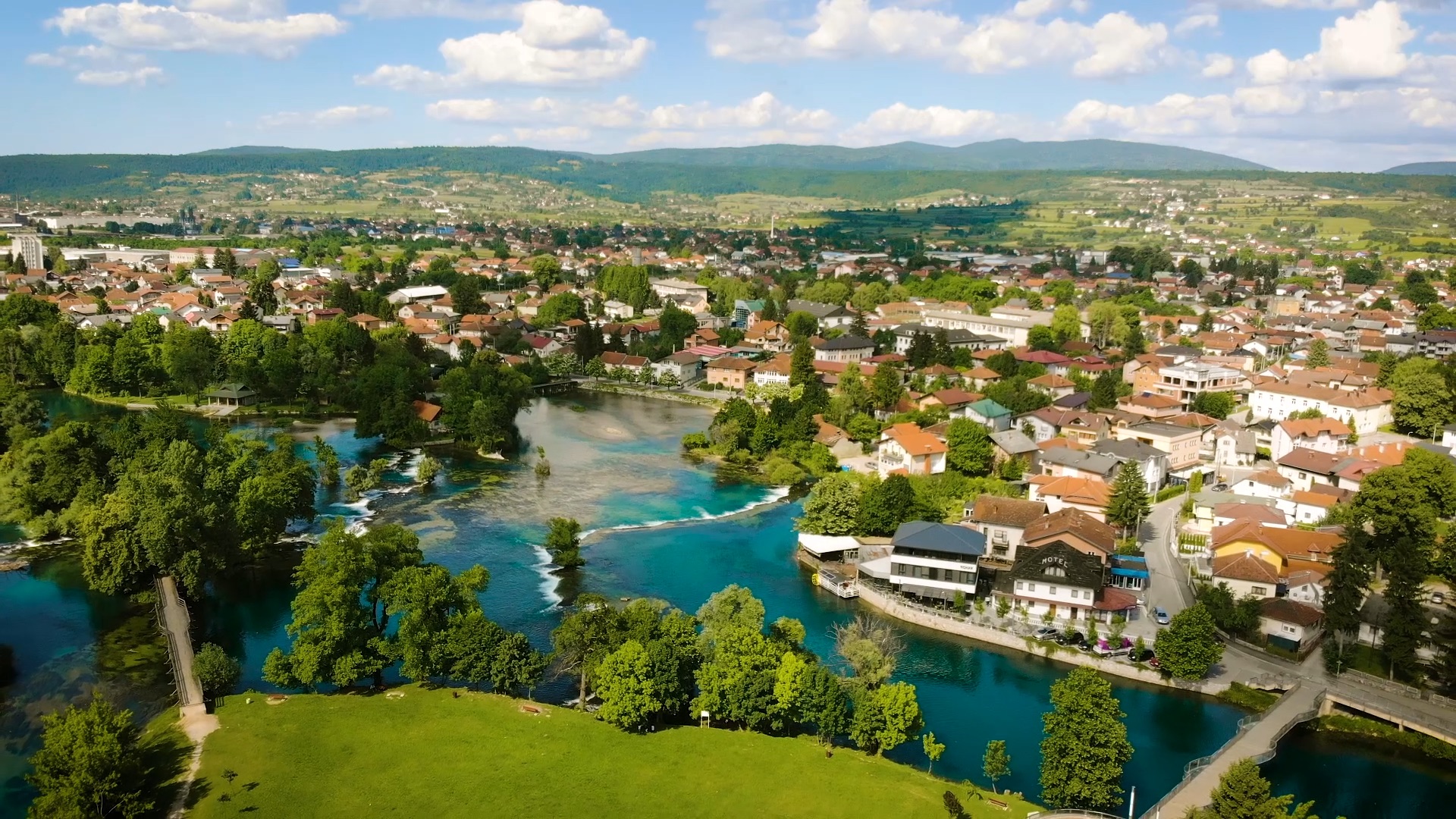--- Image caption ---
Cities worldwide are increasingly using big data to identify trends before making decisions about services or infrastructure. Data innovation is becoming core to making cities smart and sustainable.
Seoul follows its residents’ mobility patterns to optimize its public transportation, the Sudanese look at electricity at night as proxy metrics of poverty, and the City of Angels has a big data-driven approach to reducing cycling accidents on its roads.
We’re riding a similar wave in Kosovo*. With the Emergency Management Agency, UNDP Innovation Facility, UN Global Pulse, UN Kosovo Team, and Open Data Kosovo, we looked at how we can use big data to improve public services.
Our test focused on one particular theme: Can we use anonymous emergency call records to the 112 service as a way to improve emergency response in Kosovo?
First, we ran an algorithm to find out initial patterns and timelines of emergency calls made in Prishtina. Then, we mapped the calls geographically with the help of Kosovars on a crowdsourcing platform we developed.
 Emergency calls volume over time between January 2014 and October 2015 in selected categories. Traffic accidents peak in the summer months.
Emergency calls volume over time between January 2014 and October 2015 in selected categories. Traffic accidents peak in the summer months.
Overall, we mapped about 24,000 calls in Prishtina. Our work revealed trends that go beyond just the life-saving services.
Here’s a taste of what we found.
1. Roundabouts are hotspots for traffic accidents. Traffic accidents also increase in the summer, likely a result of the diaspora visiting Kosovo.
2. More traffic accidents happen during the afternoon rush hour (4–6 pm) than in the morning (7–9 am). Do people under-report when rushing to work? Or are they more tired and less likely to pay attention on the road in the afternoon?
3. Thirsty, hungry, can’t wait? A large portion of illegally parked cars and blocked streets appears in areas typical for restaurants and bars. Calls relating to noise complaints as a result of bars and clubs are also more common in the summer.
4. Calls relating to animals (mostly wild dogs) are much more common in the winter months. This points to dogs coming to more populated areas (and presumably illegal dumpsites) in search of food during that time. Such correlations reveal the less obvious linkages of urban issues.
5. The nearby lake of Badovc is a great place for a swim. The road around it, however, is victim to many landslides from the nearby hills. This reveals a need for additional infrastructure.
6. Reports of thefts and burglaries in and around Prishtina are generally on the decline. But two peaks appear on an average day, one in the morning, presumably after discovering instances that occurred overnight at home or the workplace; the other in the evening, when people return home to discover unpleasant news.
7. Judging from the visible drop in 112 call volume around 19:00, we can infer people’s dinner time (regardless of the season).
 Several areas prone to traffic light issues appear around the city (left). Fire incidents, however, seem to affect Prishtinë/Priština indiscriminately (right).
Several areas prone to traffic light issues appear around the city (left). Fire incidents, however, seem to affect Prishtinë/Priština indiscriminately (right).
While the methodology is not perfect and the spatial recording of the calls is not always precise, (which protects privacy), the publicly-available aggregate trends help Prishtina authorities and citizens get new insights about their city. Residents will also be able to demand better services that go far beyond the 112 response.
Why not take a road less travelled to get home safely? Put extra safety measures in risky places? Restaurants providie better parking to its guests? Additional infrastructure in areas with water issues?
With this pilot, we proved that data innovation can help design new solutions to issues that 21st century cities face.
Our partners from emergency services use this analysis as a prime example of why data matters. And we are working with public authorities in Kosovo*, as well as the private sector, to add public value to the endless data streams out there.
*References to Kosovo shall be understood to be in the context of Security Council Resolution 1244 (1999)

 Locations
Locations
